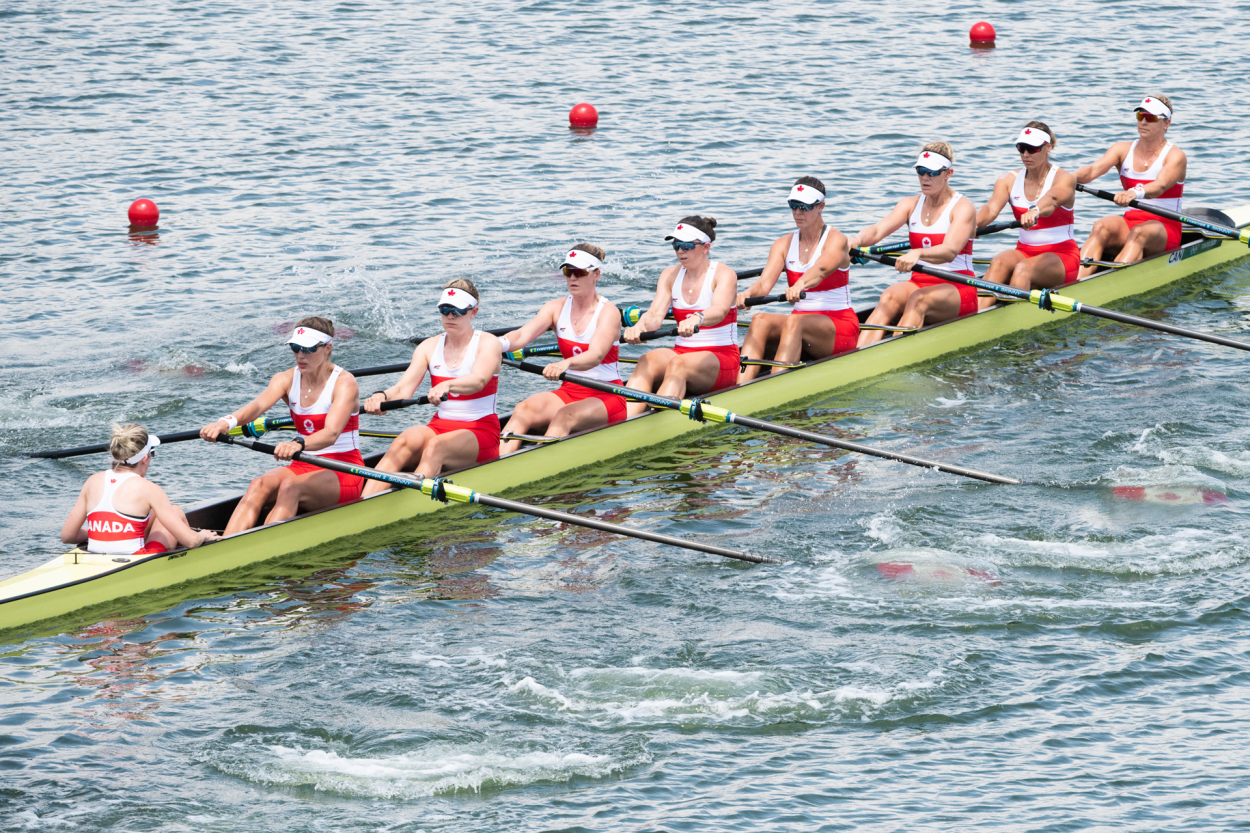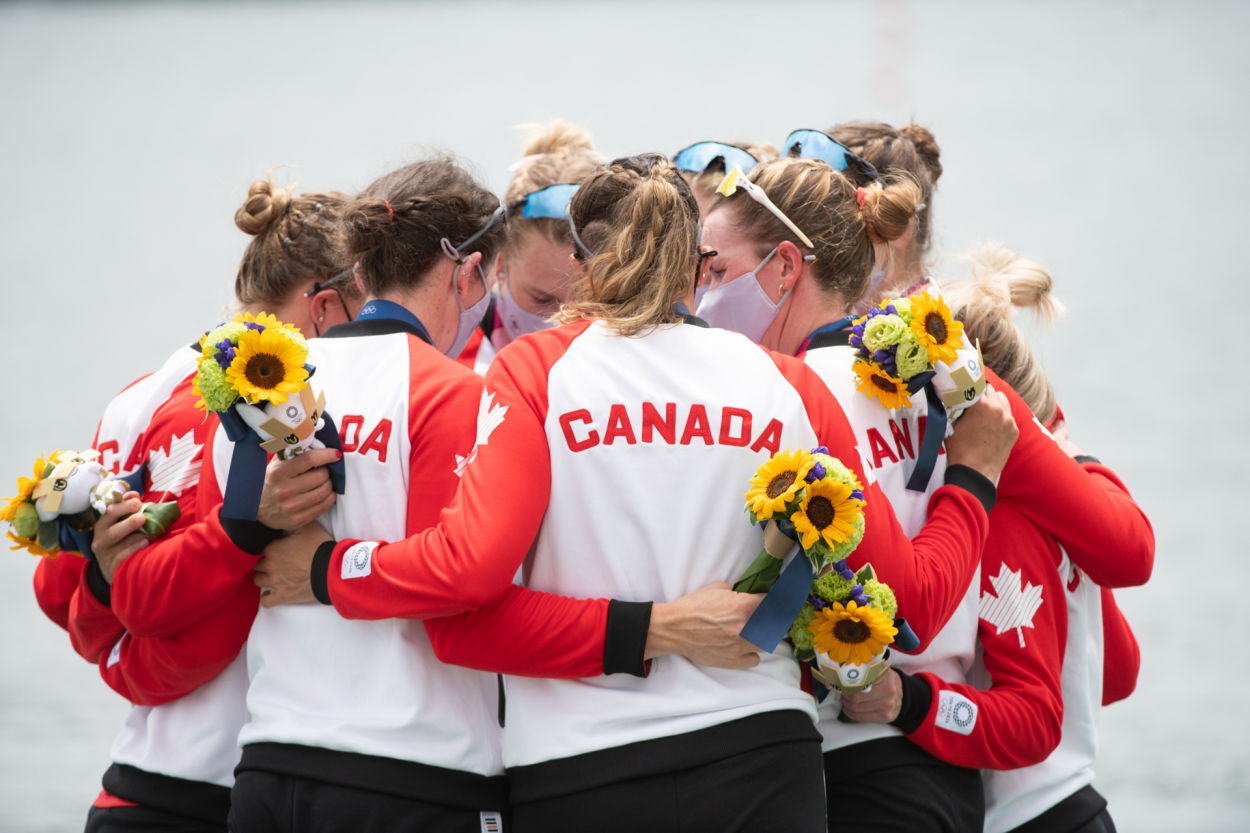Susanne Grainger reflects on Olympic gold, learning, and next steps
Q&A with Canadian rower and Athabasca University learner
No one can accuse Susanne Grainger of poor time management.
When the Canadian rower wasn’t putting her body through the paces training for the Tokyo 2020 Olympics Games, she was working out her mind. Grainger studied human resources through Athabasca University (AU) and focused on both goals until the very end.
“I literally wrote my final exam three days before I got on the plane to go to Tokyo,” she said from her home in Victoria, B.C. “It was pretty wild.”
In both instances, Grainger’s hard work paid off. At Tokyo, she won a gold medal with the Canadian women’s eight rowing team. Meanwhile, her studies at AU, made possible by a relationship with Game Plan, have allowed her to explore a potential new career path.
We sat down with Grainger to discuss her Olympic experience, lessons she’s learned through three university programs—and counting—and about preparing for life after sport.


The Hub
Congratulations on the Olympics Games and the gold medal! What have the past weeks been like?
Susanne Grainger
It’s been a whirlwind. It’s been exciting to be able to come back to Canada and share my experience with friends and family. Not having them in Tokyo cheering for me was obviously not ideal. But being able to come back and see people in person has been really nice.
How would you describe the bond between the women’s eights after accomplishing what you did?
It’s a unique thing to be able to say that you went through ups and downs as a team and then came out the other end as Olympic champions. It’s pretty wild to even say that out loud. So no matter if we see each other soon—or never—I think we’ve always got that moment frozen in time.
It must be strange going from training together every day to living separate lives in different cities.
Yeah, it’s really weird. Typically, after competing at the Olympics, you’re allowed to stay in the Olympic Village until the games are done. You have time to come down from the excitement and to experience everything that’s going on at the Olympics. But 24 hours after our race, we were on a plane for Canada. The last time I saw everybody together, in person, was the day after our Olympic final.
You have two degrees—a bachelor of arts double-major in political science and studio art from the University of Virginia and a master’s in Canadian-American relations from Western University. Now you’re studying Human Resources and Labour Relations courses at AU. Where does your passion for learning come from?
Growing up, my parents always said, “Try to learn something new every day.” That’s probably where it started. I loved university, and I loved getting to take all sorts of different kinds of courses. Maybe it’s a bit of the competitive side in me, wanting to try and learn as much as I can. But I also have many different interests.
Why did you decide to study human resources?
In all of my interests, I think the common factor is people. I love working with people and problem solving and helping others. Human resources came up as an interesting way to bring together all the things that I like to do.
How did you manage to find time to train and study?
I tried to balance my life a little bit and do something every day to get my mind away from rowing. When I was looking for options for things that I could do while training, Game Plan connected me with Athabasca University. Being able to take a course and literally break it down and fit it into my schedule any way I needed was perfect.
I tried to balance my life a little bit and do something every day to get my mind away from rowing. Susanne Grainger
What’s it been like adjusting to life after the Olympic Games—and what’s next for you?
It’s a strange thing, going from 100 to zero in a day. That’s kind of the odd thing about sport—everything is so high and the emotions are wild and crazy. And then boom, it’s done. It’s over. A lot of athletes struggle with that transition after competing or go through a period of depression. I’m still not entirely sure what’s next for me. But the fact that I’m in school and learning, I’ve tried to keep my doors open. I’m open to all options at the moment.
Lastly, AU learners have a lot of flexibility when it comes to finishing their courses and scheduling exams. Why the heck did you cut it so close to Tokyo?
I remember at the time thinking to myself, why have I done this and why didn’t I schedule the exam earlier? I could literally plan the whole course, so I did it to myself! But it worked out.